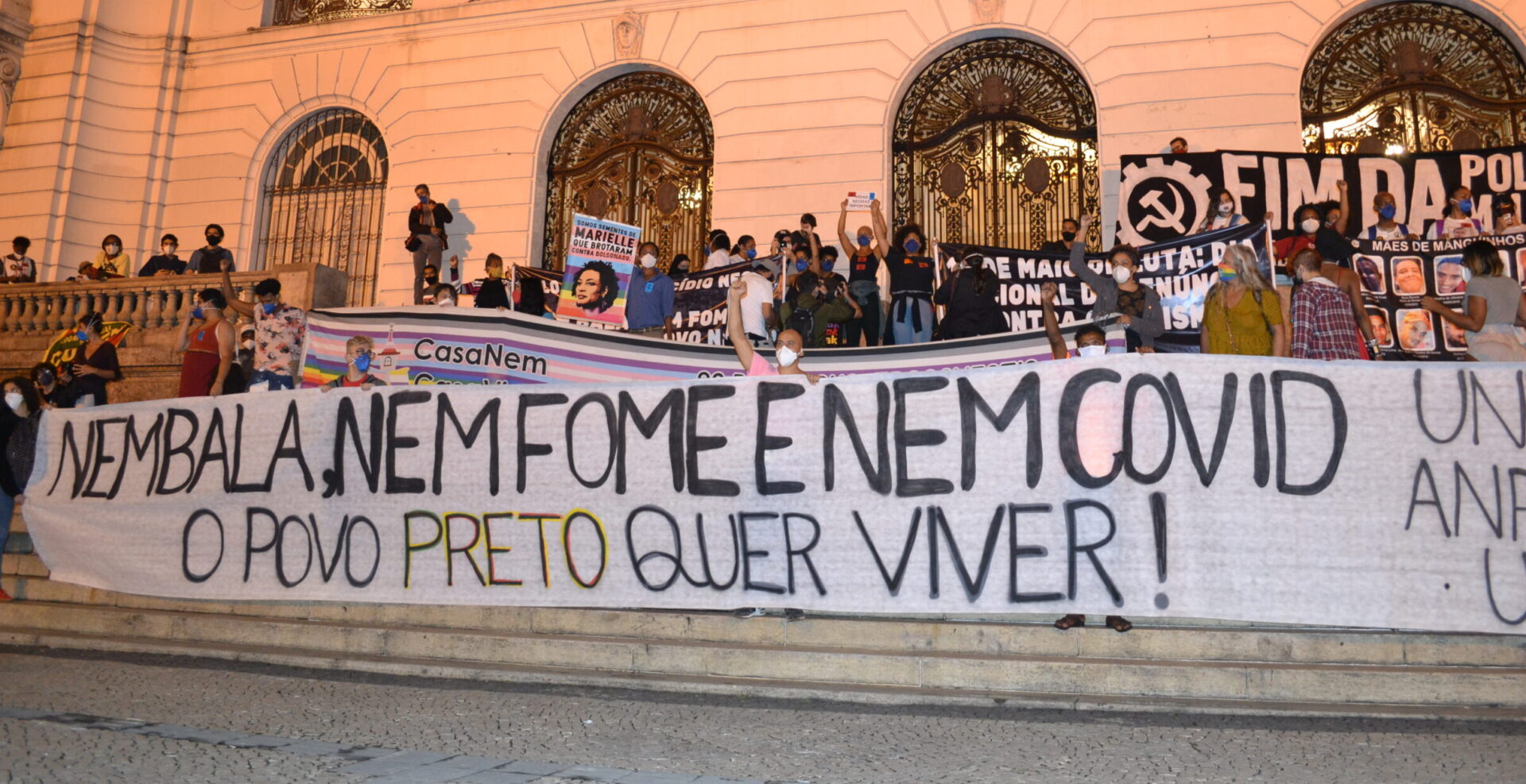Brazil is a country with enormous territorial dimensions and a vast diversity of populations, environments and cultures. From north to south, indigenous peoples and quilombolas, the black population and other groups in situations of vulnerability – including LGBTI+ people and other intersectionalities – make up different socio-cultural and religious traditions that persist and remain visible, all seeking respect for their differences and deserving of access to justice.
According to the IBGE, 56% of the Brazilian population declares themselves black. This percentage is reflected in the disparities in access to basic rights in the country. The data on violence and exclusion of the black population warns about the impact of racism in the most diverse sectors of the country.
The level of racial violence further increases when these transcend with gender issues and diverse populations. For many years, Brazil has, unfortunately, been at the top of the charts of countries that see the most killings against LGBTI+ people in the world. This intersection of violence is reflected in the precarious conditions in which several indigenous peoples and quilombolas find themselves at the hands of territorial disputes in Brazil, which is a political clash between the State, landowners and illegal mining interests, and results in a scenario full of violations and a lack of consideration for the basic right to live with dignity.
Race and Equality values an intersectional perspective when supporting its partners because it understands that race issues are often intertwined with other issues, such as gender, territory, economic and social vulnerability issues, among others.
Our Work in Brazil
Since 2019, Race and Equality has been working in Brazil strengthening and building alliances between civil society organizations. From listening to these organizations, we seek to identify what are their priorities, strengths and points to be developed, to provide conditions for administrative and legal structuring through cooperation with partner law firms. Our goal is to strengthen grassroots organizations to become autonomous political actors and promote structural change in their countries.
Likewise, we work together with partners to develop and implement national, regional and international strategies for legal action in cases of human rights violations. We act strategically to connect civil society organizations and the groups they defend, observing the highest standards of human rights protection.
At the national level, we act strategically through political advocacy, especially in Brasilia, dialoguing with Congressmen/Parliamentarians who advocate on the Human Rights agenda, together with our national partners. In addition, we carry out actions in conjunction with Embassies and strategic sectors of the Government that deal with the human rights agenda. Our commitment through political advocacy actions is to pressure the Brazilian State to guarantee the anti-discrimination right in the country, and to allow the democratic regime to be effectively an instrument for promoting the human dignity of the LGBTI+ population, the black, indigenous, Roma people, among other ethnicities.
Finally, Race and Equality together with its partners seek to prepare reports and dossiers on the situation of the country with strategic recommendations so that they can guide the construction of national public policies, visibility of human rights violations, democratic strengthening and, in addition, offer an overview of the Brazilian scenario at regional and international level.

Our Successes
- Race and Equality has supported visits by Rapporteurs and Experts from the international human rights mechanism to hold dialogues with civil society. We have supported the visits of Margarette Macaulay, IACHR Rapporteur on the Rights of Persons of African Descent and Against Racial Discrimination; the visit of Victor Madrigal-Borloz, United Nations Independent Expert on Sexual Orientation and Gender Identity (IESOGI); and Epsy Campbel-Barr, President of the UN Permanent Forum on People of African Descent. In addition, we support visits by representatives of the U.S. Department of State and political entities in the region to dialogue with civil society organizations in the country.
- At the end of 2020, we launched the dossier “What is the color of the invisible? The human rights situation of the Afro-LGBTI population in Brazil”, in which we discuss the lack of visibility of the rights of the Black LGBTI+ population through an intersectional perspective. In October 2021, we published a mapping of the country’s transmasculine population that resulted in the Report “The pain and delight of transmasculinities in Brazil: from invisibility to demands.”
- Through the project on LBT political participation, we launched the Kátia Tapety Political Training School, which in its first year trained 18 LBTI women in collaboration with the National Association of Transvestites and Transsexuals (ANTRA), Brazilian Articulation of Lesbians (ABL Network) and the National Network of Black LGBT Men and Women (Afro LGBT Network). In addition, this project enabled the formulation of two research materials: the dossier “Kátia Tapety Political Training School: An Experience of Strengthening Black LBT Women”; and the report “Political Violence in Intersectional Perspective: Dimensions of Exclusion of Cis and Trans Women in the Brazilian Political Scenario”.
- We promote and strengthen the capacities of civil society organizations in international advocacy strategies and participation in the following spaces for the promotion and defense of human rights:
-
- The Committee that monitors the Convention on the Elimination of All Forms of Discrimination (CERD).
- The Committee that monitors the Convention on the Elimination of All Forms of Racial Discrimination against Women (CEDAW).
- The Universal Periodic Review (UPR)
- The Permanent Forum of People of African Descent
- The UN Permanent Forum on Indigenous Issues
- United Nations Expert Mechanism for the Advancement of Racial Justice and Equality in Law Enforcement – EMLER
- The OAS General Assembly
- The Summit of the Americas
- Race and Equality is a co-petitioner in the case of the violation of security and imminent risk to the life of transvestite and black councilwoman Benny Briolly Rosa da Silva Santos, alongside other human rights organizations seeking to grant precautionary measures before the Inter-American Commission on Human Rights (IACHR).



